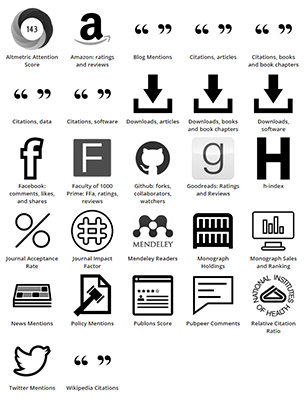Metrics Toolkit
There are lots of new metrics for evaluating your research, but which ones are the best to use? Metrics Toolkit is an excellent website that helps you select the most appropriate metrics (such as citations, web metrics and altmetrics).
How can Metrics Toolkit help you work with all these different types of metrics?
- Explore Metrics: Browse different types of metrics – each metric type has an explanation describing application, calculation, data source, appropriate use, and limitations.
- Choose Metrics: Find the best metric sources for your discipline. There are three defining factors:
- Impact type (attention/cultural/disciplinary/interdisciplinary)
- Research object (book, article, datasets, software)
- Discipline (Arts and Humanities/Social Sciences/STEM)
Metrics Toolkit also has examples of use cases and further resources if you want to learn about metrics in more depth.
You can find Metrics Toolkit on the Track your impact resource page.
Fiona Lamont, Assistant Librarian, Research Support Services


